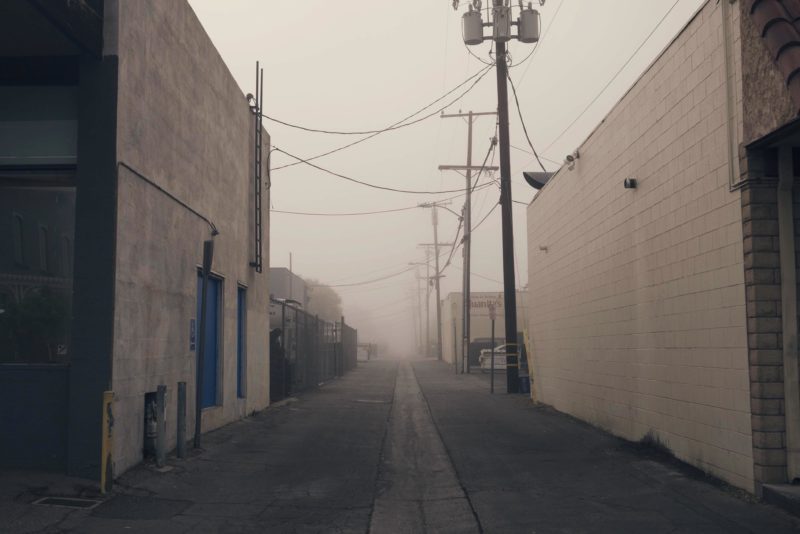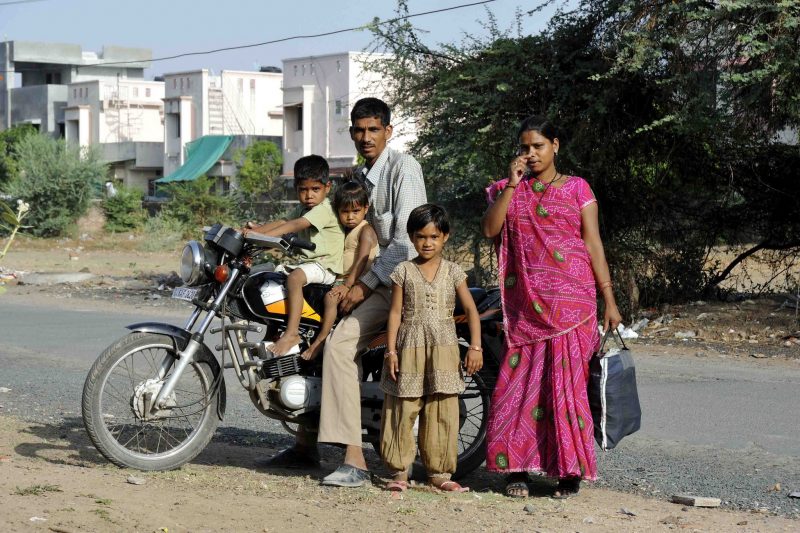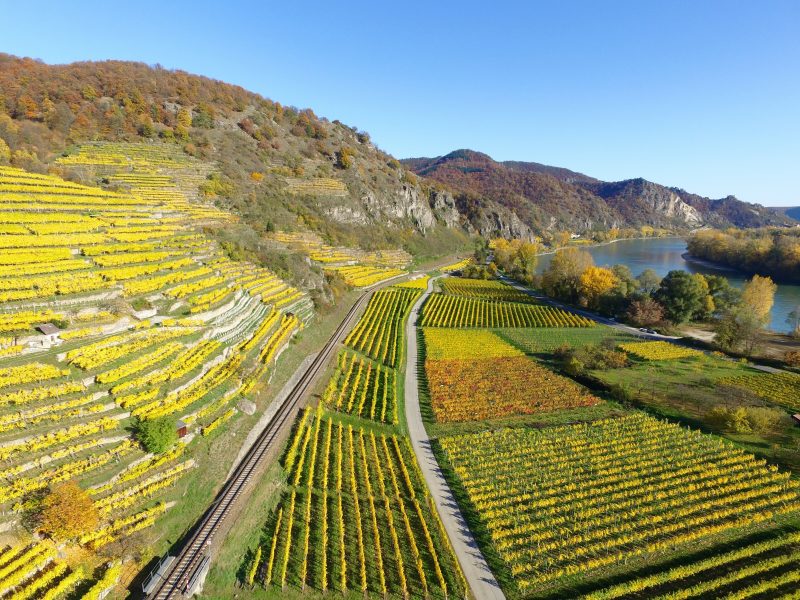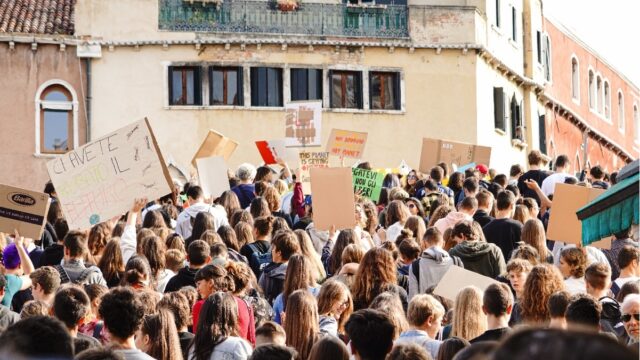Our partners respond to COVID-19
Stories of lockdown life from our networks around the world, from Lima to Ulaanbaatar.

During the first few weeks of the coronavirus pandemic, we've all been reassessing what's most important. As well as the reflections of the GEC London team, our in-country partners share their insights on how the lockdown is affecting people around the world.
Mongolia
In Mongolia, we now have 14 confirmed cases with 2 recoveries. The first confirmed case was in early March, a foreigner who recently travelled to Mongolia. Mongolia is one of the countries that acted early to take aggressive precautions - partly due to our close proximity to China - including closing the borders and making mask wearing mandatory in government buildings, the airport, public transport, most big shops and supermarkets. Since mid-March, Mongolia halted all regular international flights and only Mongolian citizens and diplomats are allowed to enter the country, all of whom are placed under 14-21 day quarantine upon landing.
As for the economy, the government has announced 5.1 billion MNT economic aid package which includes waiving of income tax and social security payments for most small and medium enterprises for 6 months excluding state employees and big businesses, postponement of bank loans for 3 months and unemployment benefits. As an importing country, we will likely be affected by trade restrictions put by neighbouring countries.
As for the pandemic and the lockdowns around the world, although I would like to think of it as a much needed reset or a pause for the global economy and society, it bothers me to think that this is costing basic human needs such as food and shelter for some. The sudden internal migration in India, 260,000 potential jobs to be lost in Mongolia, stressed out nations and people, potentially long-lasting psychological effects - all these will outweigh any benefits that we are seeing from the slowdowns.
Perhaps in hindsight, we will see more clearly how much we need to change the way we behave towards nature, among each other, the things we prioritize and produce.
- Odonchimeg Ikhbayar, ECRC
India:
The last week has seen horrifying scenes of reverse migration, that have reminded us of the partition in 1947. Hundreds of thousands of people from cities across the country are walking back to their villages covering huge distances on foot. Young men and families, with children carrying their meagre belongings on their shoulders or heads, with no food or water. People do not trust the government to provide support, and thus are desperate to reach the social security only their own communities back home can provide.
And while state and national governments are all reacting now, with food and shelter asking people, in fact forcing people to stay in community shelters, a lot of damage has already been done. The Indian lockdown has totally failed to take into account the millions engaged in the informal economy and small scale private enterprises and services - and so already the pandemic is causing huge job and income losses for the poor.

What lessons and opportunities does this situation present? What can be done that enables many of the people who are migrating back to stay back once this crises is over? New livelihoods are surely required... but what kind? Infrastructure and urban services certainly. But we must advocate a green and resilient transition away from business-as-usual.
On the other side, the disaster response is working best at local levels, neighbourhood groups, and village support societies. This tells us something about the scale of action, and what can best be done at the local level.
And finally as one sees so much of humanity reaching out to each other online, there are online courses made free, virtual museum tours reading clubs etc. And also sharing of research as the world goes in high gear to look for solutions for the vaccine, test kits, ventilators, protectove equipment etc. it makes me wonder if the at last we see a glimmer of open knowldge systems emerging. A world without IPR??
- Zeenat Niazi, Development Alternatives
Peru
The first case in Peru was announced on the 6th of March, and very strict measures were quickly taken, even cancelling European and Asian flights and restrictions to public meetings; on the 15th of March, President Vizcarra declared a National State of Emergency for a month, including a strict lockdown until the 12th of April and a nightly curfew between 6pm to 5 am.
Besides the enormous negative effects of the lockdown on the economy, Peru has to deal with two main challenges to any corona recovery:
1. Over 70% of the Peruvian workforce is informal. This means that these jobs operate outside legal and regulatory systems, and don’t have work benefits and protections stipulated in law. So most Peruvians won't be paid while they are not working, they can't access benefits, and they won’t have any state income during this month of lockdown. Economic aid is being offered through cash transfers to poor people, but it's challenging to identify informal workers as they are not registered in government data.
“ We are very worried about the impact on the population at large if and when the virus spreads to the townships and low-income communities... I am not sure what kind of economy will be left with when the crisis is over.”
2. In the capital Lima alone, almost half a million people do not have access to water in their houses. Local governments are organising water distribution through water trucks to thousands of homes in order to improve sanitary conditions.
We hope these measures will help us keep the number of infected as low as possible, as Peru has a precarious health system which will not be able to cope with large numbers of cases. Our economy will also struggle, as small and medium enterprises do not have the economic potential to confront an international and national crisis like the present one.
- Leslie Forsyth, FNI Peru
South Africa
In South Africa, we've just completed our first week of lockdown - with another three at least to go. The pandemic has been somewhat contained so far, with about 1500 cases and 5 deaths, as it first targeted relatively wealthy people who had travelled overseas. We are however very worried about the impact on the population at large if/when it spreads to the townships and low-income communities.
The government has taken the crisis seriously and imposed a very strict lockdown, but enforcing it in some areas seems very difficult. How can we enforce a lockdown on people who live in shacks and need to be out and about to get a bit of money to buy some food? And the intersections between climate change and COVID-19 are going to make any response very challenging.
State support measures have been announced to soften the blow on the economy, but we all suspect that these measures will be insufficient. I am not sure what kind of economy will be left with when the crisis is over. A bunch of us have signed an open letter to the President on South Africa's economic responses. But in the middle of the crisis, South Africa's government debt has been downgraded to junk status by the rating agencies. This will make any response from the country much more difficult and expensive.
- Gaylor Montmasson-Clair, TIPS South Africa

Uganda
Uganda has registered 45 cases of coronavirus and by God's mercy so far we have not registered any deaths. Most of the cases are imported cases; the government has declared a two week complete lockdown with security forces enforcing compliance. The lockdown also has seen a complete ban on passenger planes with the exception of cargo planes.
To help out those in need, the Government has started distributing food to poor communities - six kilos of maize flour and 3 kilos of beans to each household, which is too meagre for a family to live on. Anticipating high levels of criminality, a curfew has also been imposed starting from 7pm till 6.30am.
The lockdown has affected our operations here, and we're all working from home, and home working is likely to be maintained for some time even after the lockdown is lifted. But we still lack laptops and good strength WiFi, so at the moment we're operating at only about 50% capacity. On a positive side, most of our staff have adjusted positively and are working remotely with hope that the situation will soon normalise. We are standing on God's Word Isaiah 26:20 and praying that soon the pandemic will pass. I hope this shades some light on the plight of Ugandans as a result of the coronavirus.
- Dr Arthur Bainomugish, ACODE Uganda
Senegal
In Senegal so far the number of cases is quite limited: 222 have tested positive, and of those 82 have completely recovered. Sadly 2 people have died, including a renowned countryman and former manager of the Olympique de Marseille football club.
Nonetheless the Government has decreed a state of emergency with curfew from 8PM to 6 AM, no traffic between the 14 administrative regions, and all external borders are closed. The government has also launched a massive communications campaign, relayed by radio and television networks, to keep people informed and encourage them to practice social distancing.
However, Senegal has similar structural difficulties to the other partners, in that the vast majority of jobs are informal. More than 75% of Senegalese people live day to day with no regular income, and cannot afford to voluntarily enter lockdown and thus lose their work - which would mean not being able to feed oneself nor ones family. This is making lockdown very difficult to enforce. The Government has announced several economic measures aimed to support poor communities, including subsidized electricity and water bills for almost a million families, and injecting 69 billion CFA to buy food for low income families.
Hotels and tourism facilities which have been severely hit by the pandemic with no clients and hundred of jobs lost have been turned into medical facilities to quarantine and heal the infected persons. Another way for maintaining the business as rooms are paid by the Government. Last but not least the situation has seen an explosion of activity on social networks, with all kind of information where news and innovative and positive messages are posted at the same time.
Let us keep safe and stay well.
- Racine Kane and Mamadou Fall, IUCN & IED Afrique Senegal


